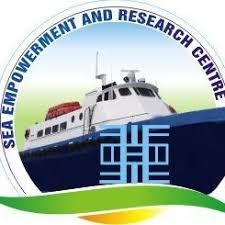
The Sea Empowerment and Research Center (SEREC) has urged the Federal Government to swiftly implement the Cargo Tracking Note (CTN) regime in Nigeria’s international trade and port operations.
In a press release issued on January 14, 2025, by the Head of Research and Strategy at SEREC, Dr. Eugene Nweke highlighted the importance of the CTN in enhancing trade security, improving efficiency, and aligning Nigeria’s port systems with global best practices.
According to SEREC, the adoption of advanced technologies such as electronic CTNs, blockchain-based CTNs, and API-based CTNs has transformed global port operations, offering greater transparency, reducing delays, and lowering costs for importers. The Nigerian Shippers Council, as the country’s port economic regulator, has approved the use of electronic CTNs, but SEREC expressed concern over the delayed implementation, which it noted has not been adequately communicated to stakeholders.
The CTN, SEREC explained, is essential for streamlining cargo processes and ensuring trade facilitation. It complements modern tools like the Single Window Project and advanced customs systems such as the B’odogwu application. By providing shippers, freight forwarders, port operators, and customs authorities with a standardized tracking system, the CTN enhances the accuracy and efficiency of cargo clearance, mitigates risks like theft and damage, and builds trust in the trade process.
In the shipping industry, the CTN remains vital for supply chain visibility, regulatory compliance, and risk management. It facilitates customs clearance, simplifies cargo identification, and supports the resolution of claims and disputes. SEREC emphasized that the CTN’s relevance is not diminished by technological advancements; rather, it integrates seamlessly with modern innovations to optimize maritime operations.
SEREC called on the Honorable Minister of Marine and Blue Economy to support the Nigerian Shippers Council in expediting the implementation of the CTN. The organization stressed the importance of managing the system cost-effectively to prevent additional financial burdens on shippers while ensuring operational efficiency at Nigeria’s ports.
“This tool is critical for addressing inefficiencies in Nigeria’s port operations, boosting trade facilitation, and strengthening the country’s position in global maritime trade,” said Forwarder Eugene Nweke, Head of Research and Strategy at SEREC.
SEREC remains optimistic that the Federal Government will prioritize the CTN regime’s deployment, positioning Nigeria’s ports to meet international standards and fostering growth in the maritime sector.















